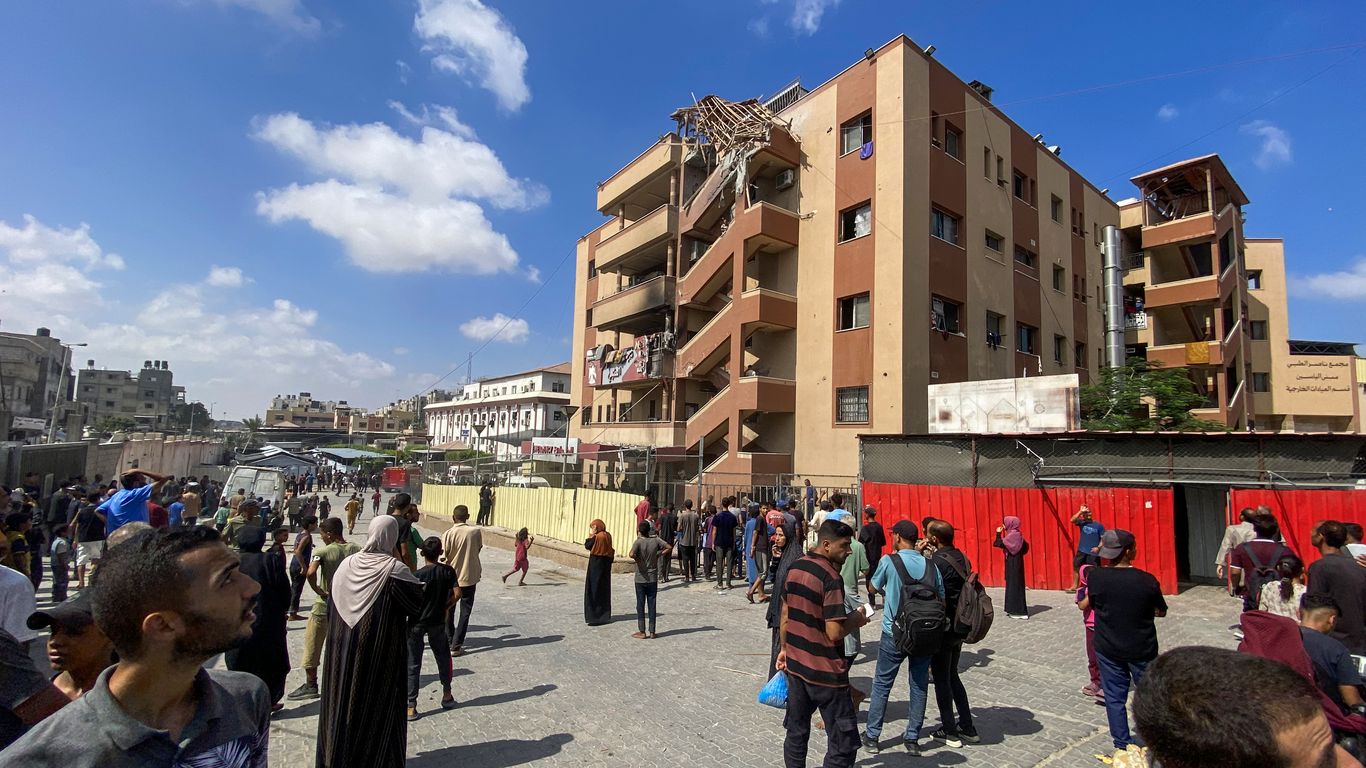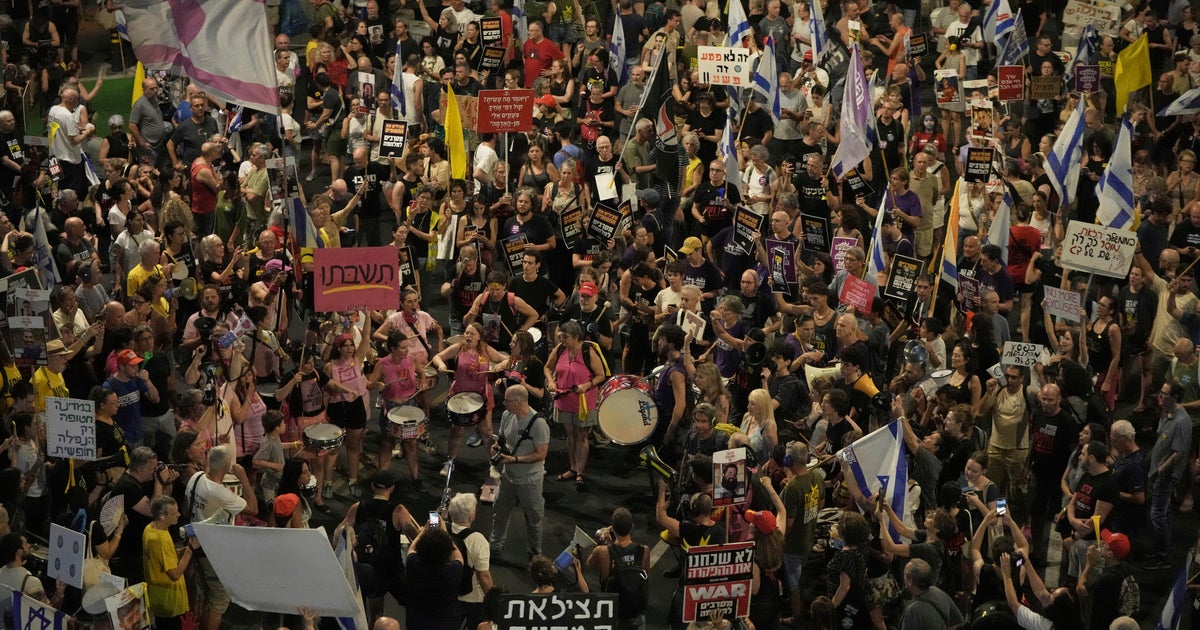Houthi Rebels Accuse Israel of Airstrike in Yemen

Introduction
In a surprising turn of events, Houthi rebels have accused Israel of carrying out an airstrike that resulted in the death of their prime minister in Yemen's capital, Sanaa. The Iranian-backed rebels have claimed that the airstrike targeted the rebel-controlled government, and have vowed to retaliate against Israel for this attack.
Key Details
The Houthis have long been engaged in a conflict with the Yemeni government and its allies, including Saudi Arabia and the United States. The rebel group, which is known for its close ties with Iran, has been accused of carrying out numerous attacks against their enemies. This latest airstrike, however, is the first time the Houthis have accused Israel of directly targeting their leadership.
The Israeli government has not yet commented on the Houthi's allegations, but the incident has raised concerns about the growing involvement of foreign powers in the conflict in Yemen. With the ongoing tensions between Israel and Iran, this attack could potentially escalate the situation to a new level.
Impact
The death of the Houthi prime minister and the accusations against Israel will undoubtedly have a significant impact on the already volatile situation in Yemen. It is unclear how this incident will affect the ongoing peace negotiations between the Houthis and the Yemeni government, or if it will lead to further violence in the region.
About the People Mentioned
Israeli
Israel is a country in the Middle East, established in 1948, with a rich cultural tapestry and a vibrant music scene that has produced many internationally recognized artists. While the query "Israeli" is broad, in the context of music and popular culture, several figures stand out as emblematic of Israel’s artistic contributions. Ofra Haza is among Israel’s most celebrated singers, known globally as “the Madonna of the East.” Born in 1957 to a Yemenite Jewish family, Haza rose to fame in the late 1970s and 1980s with her distinctive fusion of traditional Middle Eastern melodies and contemporary pop[1][5]. Her 1984 album Shirei Teiman, featuring the hit “Im Nin’Alu,” brought her international acclaim and established her as a pioneer in world music[5]. Haza’s voice—a tender mezzo-soprano—and her ability to blend Eastern and Western sounds made her a cultural icon in Israel and beyond[1]. She earned numerous platinum and gold records, appeared on MTV, and contributed to major film soundtracks, including The Prince of Egypt[1]. Her untimely death in 2000 from AIDS-related complications shocked the nation, but her legacy endures as a symbol of Mizrahi cultural pride and musical innovation[1][5]. Other notable Israeli musicians include Dana International, who won the Eurovision Song Contest in 1998 and became a global LGBTQ+ icon[4]; Shlomo Artzi, Israel’s best-selling recording artist, known for his folk-rock style and marathon live performances[9]; and Aviv Geffen, a rock musician influential in youth culture since the 1990s[4]. The Idan Raichel Project has also gained international attention for its multicultural collaborations[10]. In recent years, Israeli music continues to evolve, with artists like Eyal Golan dominating the Mizrahi pop scene and new talents emerging through reality shows such as The Voice Israel[3][5]. Israel’s music industry remains dynamic, reflecting the country’s diverse population and its ongoing dialogue between tradition and modernity. While no single recent event defines the entire scene, the sustained global influence of Israeli artists—both past and present—underscores the country’s significant cultural footprint.
About the Organizations Mentioned
Yemeni government
The **Yemeni government** is the internationally recognized authority of Yemen, operating amid complex and fragmented political and military realities shaped by a decade-long conflict. Officially, Yemen is a republic with a semi-presidential system, where the President, elected by popular vote, serves as head of state and appoints a Prime Minister to lead the government. The legislature is bicameral, consisting of a 301-member elected House of Representatives and a 111-member appointed Shura Council. The government’s constitutional framework aims to function as a liberal parliamentary democracy, though practical governance has been hindered by ongoing conflict and fragmentation[1][4][9]. Historically, Yemen unified in 1990, consolidating northern and southern territories under a single government. Since then, it has struggled with internal divisions, tribalism, and insurgencies. The most significant recent development was the Houthi takeover of northern Yemen, which dissolved parliament and installed rival governing bodies, challenging the internationally recognized government led previously by President Abdrabbuh Mansur Hadi. In April 2022, Hadi transferred authority to an eight-member Presidential Leadership Council (PLC), chaired by Rashad al-Alimi, created under Saudi and Emirati influence to unify anti-Houthi factions. However, internal rivalries within the PLC and competing military factions, often aligned with external patrons, have weakened its coherence and effectiveness[1][2][5]. The Yemeni government’s key achievements lie mainly in its diplomatic efforts, including power-sharing agreements like the Riyadh Agreement (2019) that sought to reduce internal conflicts, and its ongoing commitment to UN-led peace processes and ceasefire negotiations. In 2024-2025, the PLC took steps to centralize intelligence and engage in humanitarian and economic de-escalation agreements to mitigate the war’s impact[5][6]. Currently, the Yemeni government controls parts of southern Yemen and the interim capital Aden, but lacks effective control over much of the country, wit
Saudi Arabia
Saudi Arabia is a unitary absolute monarchy governed by the Al Saud royal family, with King Salman as the head of state and Crown Prince Mohammed bin Salman holding significant executive power, including serving as Prime Minister since 2022[1][3][8]. The country’s governance structure is based on Islamic law (Sharia), with the Quran considered the constitution, and royal decrees shaping legislation[2]. The King oversees the Council of Ministers, which manages executive functions such as foreign policy, defense, finance, and education[1][2]. Historically, Saudi Arabia was founded by King Abdulaziz Al Saud in the early 20th century, uniting disparate tribes and regions under a single kingdom. Succession traditionally stays within the family, selected by consensus or the Allegiance Council[3]. The kingdom’s political system blends tribal traditions with religious authority, closely aligning with Wahhabi religious leaders for social and political control[3]. Economically, Saudi Arabia is known for its vast oil reserves, with Saudi Aramco being the world’s largest oil company. In recent years, the kingdom has embarked on ambitious reforms under Vision 2030, a strategic plan to diversify its economy beyond oil, attract foreign investment, and develop sectors like tourism and technology[4]. Vision 2030 promotes privatization, corporate governance improvements, and mega-projects such as NEOM, a futuristic economic zone[4]. The Public Investment Fund (PIF), chaired by the Crown Prince, plays a key role in these initiatives by investing domestically and internationally, although it has faced criticism related to human rights concerns and controversial development practices[6]. Saudi Arabia’s legal and business environment is evolving, with reforms in corporate governance and increasing inclusion of women in leadership roles[2][4]. The government permits full foreign ownership in most sectors except strategic ones like oil exploration[9]. Despite economic modernization, the kingdom remains an absolute monarchy with limited political freedoms and human rights challenges[7]. This comple
United States
The **United States** is a federal republic and a global superpower, playing a leading role in economics, military strength, technology, and governance. It is a nation of approximately 348 million people as of 2025, characterized by its diverse population and dynamic economy[8][6]. Founded in 1776 following independence from British rule, the U.S. rapidly evolved into a major world power, especially after World War II, when its technological and economic investments solidified its global dominance[4]. Today, it remains the world’s preeminent military power, with 76% of Americans recognizing this status, while about half view it as the leading economic power globally, though China is seen as a rising competitor[2][3]. The U.S. government operates through a complex system that manages federal finances, taxation, social welfare programs, and trade policies. Recent legislative changes, such as the 2017 Tax Cuts and Jobs Act and the 2025 One Big Beautiful Bill Act, have shaped the tax landscape to influence economic growth, labor markets, and federal revenue[1]. Despite challenges like rising federal deficits projected to reach 6.9% of GDP by 2027, consumer spending remains resilient, and business investment is expected to grow steadily in 2025[5]. In governance, the U.S. is rated "Free" with a score of 84/100 by Freedom House, though concerns about democratic erosion and partisan conflicts persist[6]. Public trust and satisfaction with government services fluctuate, reflecting ongoing debates about policy effectiveness and institutional competence[7]. Technologically, the U.S. maintains a critical edge, underpinning its economic and geopolitical power. Experts warn, however, that technological dominance is not guaranteed indefinitely, emphasizing the need for adaptive policies and international cooperation to sustain leadership in innovation and global affairs[4]. Overall, the United States remains a pivotal force in global business, technology, and politics, balancing historic strengths with contemporary challenges in
🔗 Connected Events Overview
Discover related stories and their connections to this article
📊 Quick Insights
📅 Connected Events Timeline
Explore connected events with detailed insights and relationships
👥 People Involved in Connected Events
🏢 Organizations & Products
Key entities mentioned across connected events
🏢 Organizations
🛍️ Products
💡 Connected Events Insights
Discover patterns and trends across related stories
🔥 Trending Topics
Trending Blogs in Politics

Missing FBI Records Spark Epstein Files Controversy
CNN review finds dozens of FBI witness interviews missing from Epstein files, fueling questions about transparency.

Trump Administration Escalates Iran Pressure: Sanctions, Diplomacy, and Military Contingencies
Trump escalates pressure on Iran with sanctions, talks, and possible military options as negotiations resume.

Federal Crackdown on Medicaid Fraud: Minnesota First, Nationwide Expansion
Trump administration unveils an aggressive crackdown on healthcare fraud, freezing Minnesota funds and expanding Medicare/Medicaid integrity nationwide.

White House Strategy: Israel Might Strike Iran First
Exploring White House push for Israel to strike Iran first, amid worries of retaliation, casualties, and political calculations.

Trump's Bold State of the Union: Live Updates on a Secure Border and Booming Economy
Live updates on Donald Trump's state of the union address, highlighting border security, a booming economy, and executive orders.











